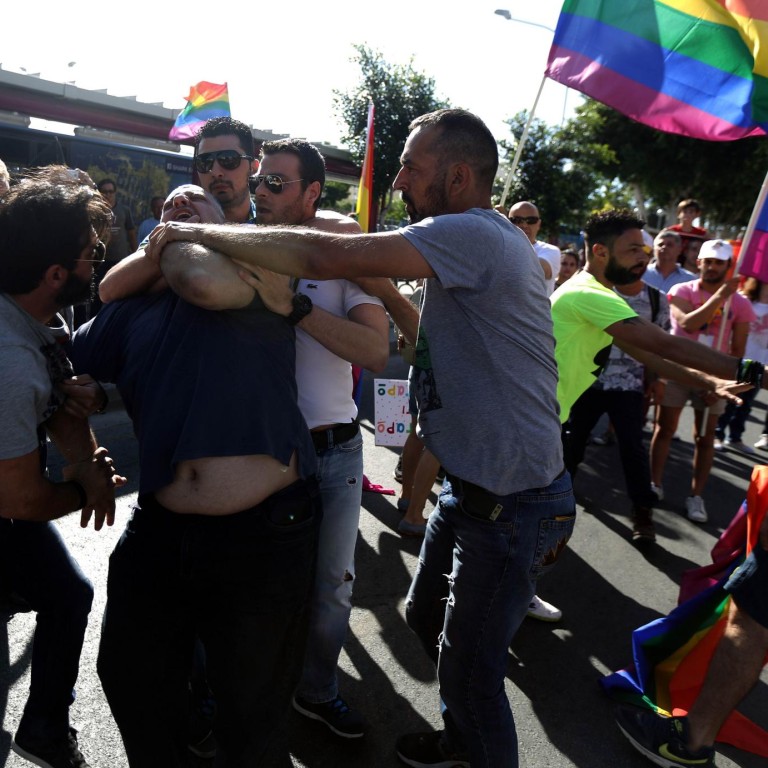
Cyprus' first gay pride parade in Nicosia draws thousands of marchers
Thousands of people have marched in Cyprus' first gay pride parade, calling for equal rights in a country where homosexuality is still vehemently opposed by an influential Orthodox church.
Thousands of people have marched in Cyprus' first gay pride parade, calling for equal rights in a country where homosexuality is still vehemently opposed by an influential Orthodox church.
Waving rainbow flags, more than 3,500 people of all ages marched peacefully on Saturday through the streets of the Cypriot capital Nicosia where earlier a much smaller, anti-gay group clashed with police.
"I'm here because I support the right of everyone to be who they are," said activist Magda Zenon. "I want to live in a society where everyone has equal access to resources and the law."
Cyprus decriminalised homosexuality in 1998, five years after a lone activist won a damning judgment against the country in the European Court of Human Rights. Sixteen years on, activists say Cyprus still lags far behind its European Union peers in terms of rights for gay people, and has been slow in pursuing legislation on civil partnerships.
Gay couples in Cyprus do not have the same rights to social housing and other benefits as heterosexuals and miss out on other entitlements such as being consulted over medical treatment if a partner is ill.
"There is one love, and our love deserves equal recognition before the law," said Gabi Calleja of ILGA Europe, an advocacy group for lesbians and gays.
Shortly before the parade, about 200 people, including clerics, held a noisy protest outside the island's parliament. Some scuffles broke out.
The island's conservative Orthodox church had denounced the parade, calling homosexuality an "illness". A pamphlet issued by organisers of the counter-demonstration, a religious group, described homosexuality as a mortal sin. One placard said acceptance of homosexuality would turn Cyprus, once known as an "island of saints", into an "island of savages".
The parade was one of the largest marches seen in Cyprus in several years, bigger than protest gatherings over Cyprus' tumultuous financial bailout in 2013.
US ends ban on sex-change surgery
Transgender people enrolled in the US health programme for the elderly and disabled can no longer be automatically denied coverage for sex reassignment surgeries, according to a ruling.
The ground-breaking decision recognises the procedures as a medically necessary and effective treatment for individuals who do not identify with their biological sex.
Ruling in favour of an army veteran, aged 74, whose request to have Medicare pay for her genital reconstruction was denied two years ago, the health services appeals board ruled that a three-decade-old rule excluding such surgeries from the programme was unjustified.
Jennifer Levi, a lawyer who directs the Transgender Rights Project of Gay & Lesbian Advocates and Defenders in Boston, said the ruling did not mean Medicare recipients were necessarily entitled to have any sex reassignment surgery procedures paid for by the government.
Instead, the lifting of the coverage ban meant they would be able to seek authorisation by submitting documentation from a doctor and mental health professionals stating that surgery was medically indicated in their individual cases, Levi said.
More than 49 million Americans are enrolled in Medicare.

